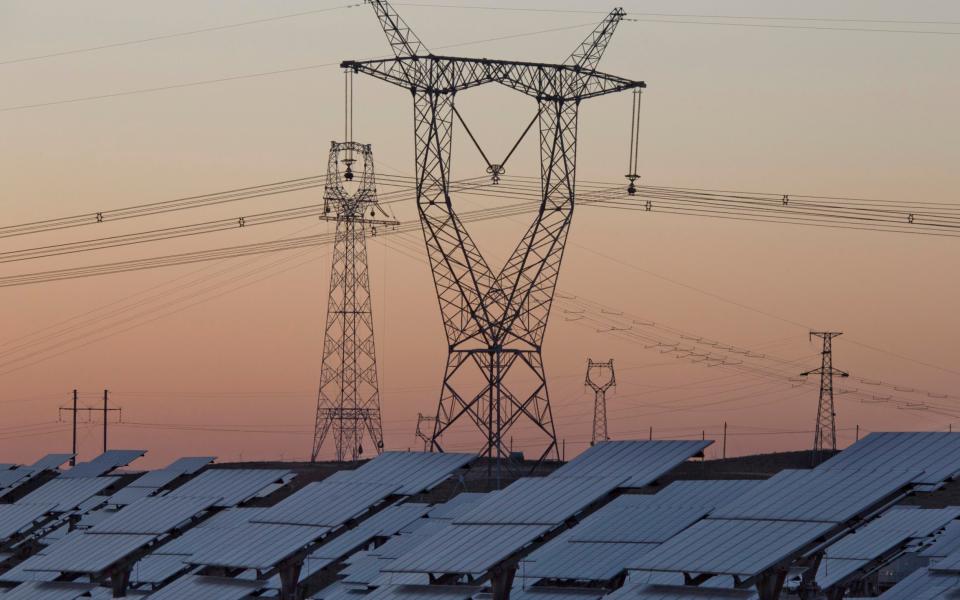Households to be paid to use more electricity under National Grid net zero plans

Households will be paid to switch on their kettles, do their laundry and charge their electric cars under net zero plans being drawn up by the National Grid.
The electricity grid operator wants to pay people to use more electricity when supplies from wind and solar farms are abundant under an update of its “demand flexibility” service.
The system was launched in 2022 to help the National Grid lessen the risk of blackouts by paying families and businesses to use less electricity when supply was tight. Last winter 2.6 million signed up to use the service.
On Tuesday, the company’s electricity system operator (ESO) announced it would no longer use the service only as a “winter contingency” to help keep the lights on and would instead operate it all-year round.
This will mean households and businesses could be asked to cut their electricity usage at other times of year.
The ESO revealed it is also working on plans for a “turn up” version of the service that could see people paid to use the extra power generated by renewables such as wind and solar farms on particularly windy and sunny days.
Kayte O’Neill, the ESO’s chief operating officer, said: “The demand flexibility service (DFS) has been a national first in empowering households and businesses to embrace energy flexibility and to be rewarded in the process.
“As we transition away from requiring DFS as a winter contingency service it is only right that we look to the future of what this service can deliver.
“We look forward to working closely with industry over the coming months to deliver a service that makes flexibility part of everyday life and that can unlock the benefits for participating consumers and society at large.”
The move comes as Britain is moving towards an energy system that is increasingly reliant on renewable sources of power such as wind and solar, which are intermittent in output.
Against that backdrop, the ESO wants to make the energy system more flexible to help smooth fluctuations in supply and demand.
Under the latest plans, this would cut both ways: meaning households could be rewarded for cutting usage when supplies are tight or ramping up their consumption – perhaps by using appliances such as washing machines – when there is a surplus of power.
In the longer run, the ESO also said it wanted greater levels of automation, so that households may eventually be able to programme their smart devices at home to participate automatically when lower prices are being offered.
The ESO launched the demand flexibility service following the outbreak of the Ukraine war when Europe was battling gas supply concerns and power prices had rocketed.
It then ran the scheme again last winter, attracting millions of households.
During that period the ESO carried out 14 tests and paid prices of between £150 per megawatt hour and £2,500 per megawatt hour, according to an industry presentation.
The service ultimately helped to shift more than 3.7 gigawatt hours of power usage out of peak times.
Forecasts suggest there will be more headroom in power supplies this coming winter. The ESO said there was now less of a need for the demand flexibility service to be kept as a contingency for the heating season.
But it said the service will instead be expanded “to further support high demand periods on the system all year round”.
Last summer, Britain was forced to fire up a coal power station to boost electricity supplies during a heatwave that drove demand higher and diminished the efficiency of solar panels.
Paying people to use less electricity during this period could have been an alternative.
The ESO said it was planning to run a consultation on the changes this summer before submitting a plan to Ofgem in September and going live in November.

 Yahoo Finance
Yahoo Finance 